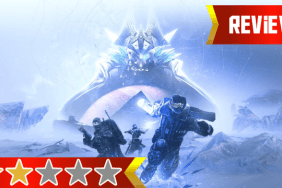The bleeding Kontinues.
It’s been a heck of a week here at GR. My Dead or Alive CD started skipping,
a game called Cornhole is
apparently sweeping the nation, and, much to our West Coast hippy chagrin,
another kind of cornhole was re-elected president. Our misery stacked like pancakes.
We needed a catharsis, a scapegoat, something…
-
Fun to play with friends
-
Easy to pick up
-
Ultra gory!
-
Cool new fighting styles
-
Somewhat thin single-player gameplay
-
Mobility problems











